Thank You JZ, You’re Special

Sharuko On Saturday
IN their finest hour, amid an outpouring of boundless joy, they remembered something very important — their roots.
Like Kunta Kinte, in Alex Haley’s blockbuster novel “Roots — The Saga Of An American Family,” they embraced their identity, with a touch of pride, and paraded their national colours.
Kunta Kinte refused to assume a new identity, and a new name, Toby, and — in that expression of eternal love for who he truly was, he provided us with an enduring lesson about the values of having a sense of pride in who we are.
Toby sounded fashionable, in the heart of the New World, where his shameless captors had taken him, and traded him, as a commodity rather than a human being, as an object rather than a person.
As a slave, rather than a man, someone with just a different and darker skin, someone with just a different and darker hair and someone with just a different and flatter nose.
As a commodity, rather than a human being.
His amazing strength and never-say-die spirit had helped him survive the brutal conditions of the Lord Ligonier, across the Atlantic Ocean, from Africa to Maryland, in a sickening process which converted him from an independent young man, into a slave.
Forty two others, on the same trip, didn’t make it, dying in their dozens, on this voyage, from the paradise of their homelands in West Africa, to the hell of what America represented, in their transformation into property.
Only 90 of the slaves, including Kunta Kinte, survived the four-month trip.
But, for Kunta, even in this helpless state, in which he now belonged to John Waller, a Virginia plantation owner who had bought him for £155, there was still a remarkable sense of patriotism.
A yearning for his roots in the jungles of The Gambia, not as developed as the New World where fate had taken him, against his will, but home sweet home, all the same.
There is something special about a home, about a country, about a people, about a nation, it brings out this special feeling, which nothing else can.
This powerful sense of belonging, this amazing bond which ties one to a certain place, and land, which he or she calls my own, our own, whose name defines us, and provides us with an identity.
And, our footballers in England, chose their finest hour this season, amid the glow provided by the brightness of success, to remind the world who they truly are.
About where they come from, where their extended families still live, the little country on the other side of the world, floating between two huge rivers.
A proud nation of just 15 million people, at the last count which, in a profound way, has left its enduring mark in the history of world sport.
The little country, which has probably the richest rugby union nursery in the world, and would certainly have been the most successful Rugby playing nation on the globe, had Big Brother and others, not perfected the art of poaching our finest talent.
Researchers have been trying, for years now, to understand us, to try and find what really makes us unique, what really makes us such a uniquely talented sporting nation.
They can’t understand how a small country, of just 15 million people, has managed to produce a world number one golfer (Nick Price), a world number one diver (Evan Stewart), a world number one swimmer (Kirsty Coventry) and world number one tennis players (Byron, Wayne and Cara Black).
A rugby player once ranked the best in the world,

David Pocock
, the boy from Gweru, who became an Aussie legend but has remained committed to his country he is one of the leading voices in the conservation of our wildlife.
But, before Pocock, there was Ray Mordt, one of our boys, who went to play for the Springboks and became the first player to score a hat-trick of tries, against the Mighty All Blacks. Gary Teichmann, the boy from Gweru, also followed a similar path and was 11 when he arrived in South Africa where he would, in time, transform himself into a legendary skipper of the Boks.
His appointment to lead the team came after he had featured in just six games and, in the 39 Tests in which he was the skipper, the Boks won 27 of them, including a record 17 Tests on the bounce.
A NATION OF WINNERS
Adrian Garvey, Beast Mtawarira, Brian Mujati, Tonderai Chavhanga, Des van Jaarsveldt and Bobby Skinstad, to name but a few, are some of our boys who went on to star for the Boks.
Sebastian Negri (Italy), Scott Gray (Scotland), David Curtis (Scotland), Takudzwa Ngwenya (USA), David Curtis (Ireland), Don Armand (England) are some of our boys who ended up representing other countries in rugby union.
Braydon Ennor played for the mighty All Blacks while Japanese flier, Kotaro Matshushima, has Zimbabwean roots.
And, it’s not only in playing, where we have distinguished ourselves.
Ed Griffiths, who worked as the CEO of Saracens and Bath, SA Rugby CEO, is one of our boys.
And, so is Andy Williams who rose to become CEO of SANAAR, who are in charge of the powerful bloc of heavyweights South Africa, New Zealand, Australia and Argentina.
We have won Olympic gold in hockey, produced a cricketer who was ranked number one in the world, a women’s football team which played at the Olympics, despite having failed to fly to one of the qualifiers, because ZIFA were broke.
We provided the world with the first African footballer to win the European Cup, now called the Champions League, while he was still representing a country on the continent.
His name is Bruce Grobbelaar.
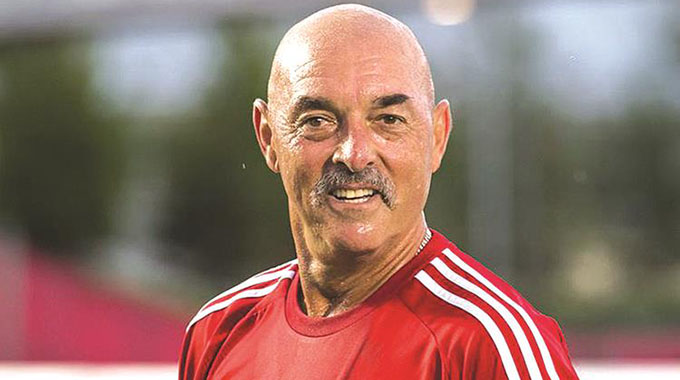
Bruce Grobbelaar
When the English Premiership was crying out for its first African footballer to feature in its brand new league, the answer was provided by a Zimbabwean star, Peter Ndlovu.
He was still a teenager then, which more than provides justification to the gospel that we are, indeed, a very special people, when he featured for Coventry City in a league match in August 1992.
Sometime this year, God willing, the Flying Elephant, a man who in my little book remains one of the 20 finest wingers I have watched play football, will celebrate the 30th anniversary of the iconic moment when he gave the EPL its African flavour.
The day this 19-year-old flying winger from Binga, via Bulawayo, who was still six months short of saying goodbye to his teenage innocence, opened the doors for thousands of other African footballers, to come and be part of the Premiership party.
Think about all of them —
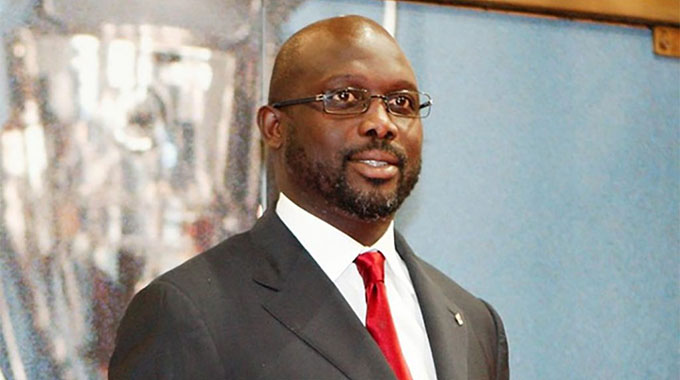
George Weah
, sorry, it’s Mr President Weah, Samuel Eto’o, Jay Jay Okocha, Salomon Kalou, Tony Yeboah, Lauren, Lucas Radebe, Emmanuel Adebayor, Kolo Toure, Sadio Mane, Yaya Toure, Michael Essien, to name but just a few.
The first man to taste English Premiership action, when it comes to African footballers, was a guy from Binga, via Bulawayo, called Nsukuzonke, the only Elephant which has been known to fly.
In January this year, the authoritative FourFourTwo magazine, in their special edition marking 30 years of the romance between the English Premiership and African footballers, released a list of who they consider to be the best 20 players, from the continent, who have starred in the EPL.
Mohamed Salah was named the best of the lot, with Drogba in second place and Peter Ndlovu made the list, in 20th position, even though his magical run came at the very start of the romance.
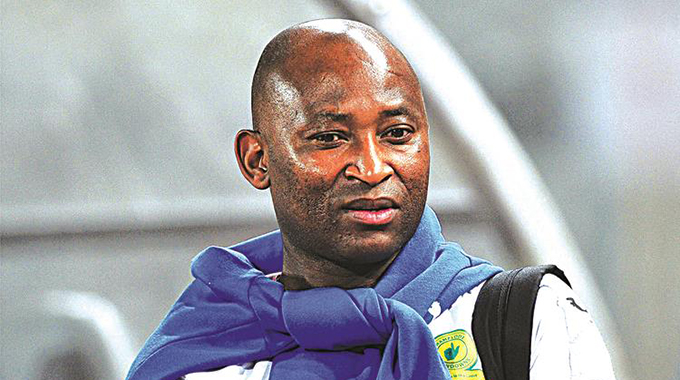
Peter Ndlovu
“The former Zimbabwe captain first moved to England with Coventry in 1991, playing a total of 196 games and scoring 43 goals for the Sky Blues,” noted FourFourTwo in their report.
“Widely regarded as his country’s greatest ever outfielder, he spent 13 seasons playing in England and was the first African to appear in the newly-formed Premier League.
“There, Ndlovu formed a fine partnership with Micky Quinn that helped fire Coventry to the top of the table (briefly), before they finished 15th.
“He was linked with a move to Arsenal in 1993/94, but the potentially record-breaking transfer failed to materialise.”
When I speak to him these days, and I say “hi legend,” his answer is always the same, “I’m not a legend brother, I’m just a Warrior.”
Of course, he is a Warrior, the team’s greatest servant ever, who redefined the meaning of patriotism and dedication to the national cause.
He even would drive straight from a football game, to the airport, to catch a plane home, for an international match, in the colours of his beloved Warriors, the following day.
Ask him today about his finest moments in the game and it is never about his hattrick at Anfield but his goals in the gold-and-green colours of his motherland.
THANK YOU TINDO, JZ
That’s why I was blown away by Tendayi Darikwa and Jordan “JZ” Zemura when, in their moment of glory at their English clubs, they chose to parade the beauty of their identity as Zimbabweans.

Tendai Darikwa
Each of the two players took his flag to the festivities, to remind the world who they are, the boys from Down South, a resilient nation of Warriors, a proud country of winners.
They brought their Zimbabwean audience into the shows, amid the celebrations at Wigan Athletic and AFC Bournemouth, to remind the world of the Warrior spirit, which had played a part in the success stories.
In today’s divided world, others would have chosen otherwise.
They would have chosen to try and turn their backs on their country because they would rather be identified, probably as English, possibly as Scottish or even as Irish.
Why would they bother bringing in the Zimbabwean factor in these celebrations, they would probably have told themselves, when the country itself is even suspended from international football?
When all the headlines, coming out of football in Zimbabwe, were painted with a coat of negativity.
Where there is a man, whose mandate for the ZIFA presidency was revoked, by the very people who voted him in, who still somehow still clings on to the fantasy that, one day, when rocks start to speak, he will bounce back into his role. It doesn’t matter to him, it seems, that his rise to become ZIFA president was probably the Miracle of the Century, orchestrated by a band of Councillors, who didn’t believe in him but were bent on removing the only other man, who was in the race.
But, in their moment of glory, Darikwa and Zemura decided to provide a colourful exhibition, complete with sights and sounds, of their romance with their motherland.
It was as powerful as it was beautiful – our flag, our boys, their families, our bond with the people of Wigan, because their captain is one of us, our bond with the people of Bournemouth, because their rising star is one of us.
Watching it all play out took me back to England in the Summer of 2002.
That’s exactly 20 years ago and I happened to be in the Queen’s base, after I was assigned to cover the 2002 Commonwealth Games, in Manchester, of all cities.
I will never forget the outpouring of a sense of pride, which I felt, on the day Kirsty Coventry, then a 19-year-old swimmer, powered her way to gold in the 220m individual medley.
Two years earlier, at the Summer Olympics in Sydney, Australia, Coventry had given us a hint she could be on to something special, at the Club Games, in Manchester.
As a 16-year-old athlete, she made history as the first Zimbabwean swimmer to reach the semi-finals of an Olympic event.
In Manchester, two years later, she delivered at the Club Games, obliterating her opposition by pushing Jennifer Reilly of Australia and Marianne Limpert of Canada, into second and third places.
Coventry’s time of 2:14.53 was a Commonwealth Games record, something which had not been done in 72 years of the Club Games.
In her moment of triumph, Kirsty made me feel so proud of myself, my country and the accreditation badge I was wearing, which identified me as a Zimbabwean.
That’s the same pride I felt when Darikwa and Zemura paraded the colours of our country, on those English football fields, to remind the world that we are, indeed, a blessed nation, despite all the challenges which life continues to throw at us.
Zemura, in particular, impressed me so much because he is still a young man, just 22 years of age, and it’s easy for him to have been swayed by the Doomsday preachers for him to turn his back on his country.
After all, he was born in London, went to school in England and has been playing his football in that country.
His short association with the broken system at ZIFA must have been a brutal reality check, for someone who has grown up in a professional set-up, but it hasn’t strained his bond with his country.
He knows these ZIFA bosses come and go, some have just left, but his country will always be there. It helps that he is someone with some good brains, who had the wisdom to study Sports Science at Canterbury University.
Those who have questioned the commitment of the British Brigade to our cause, there is your answer — plain and simple.
Don’t hate them because they don’t speak like us and love to have a cup of tea, at regular intervals, throughout the day.
They are our boys, as deeply committed to our cause as the great Peter Ndlovu, and let’s celebrate their presence because they really love our country.
To God Be The Glory!
Peace to the GEPA Chief, the Big Fish, George Norton, Daily Service, Sitting Bull, Crazy Horse and all the Chakariboys still in the struggle.
Come on United!!!!!!!!!!!!!!!!!!!!!!!!!
Ronaldoooooooooooooooooooooo!
Text Feedback 0772545199
WhatsApp 0772545199
Email- [email protected]; [email protected]
You can also interact with me on Twitter (@Chakariboy), Facebook, Instagram (sharukor) and Skype (sharuko58) and GamePlan, the authoritative football magazine show on ZTV, where I interact with the legendary Charles “CNN” Mabika, is back every Wednesday night at 9.30pm





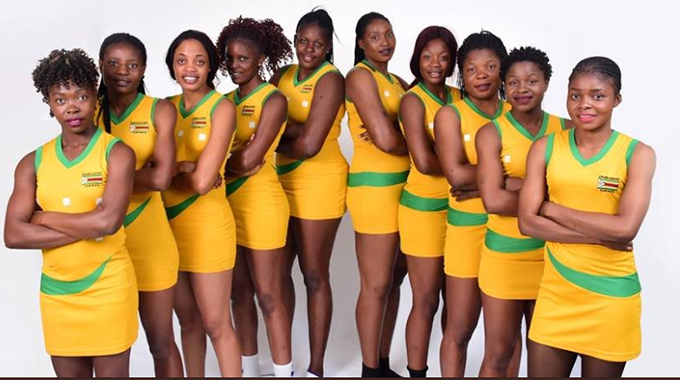

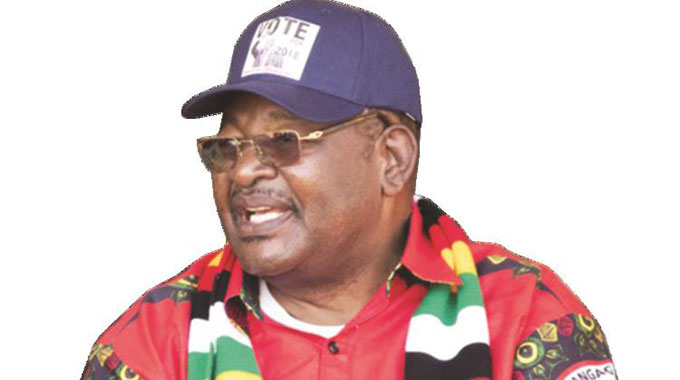
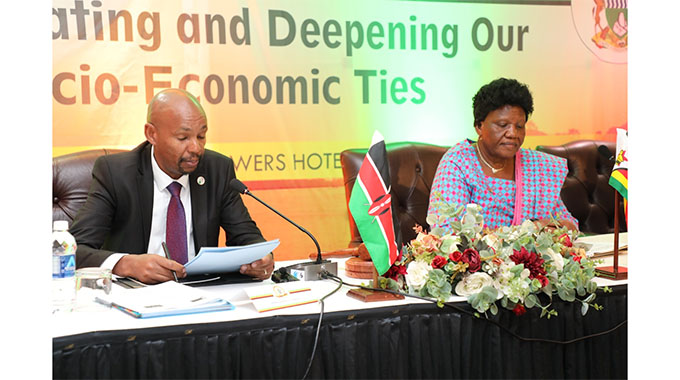

Comments